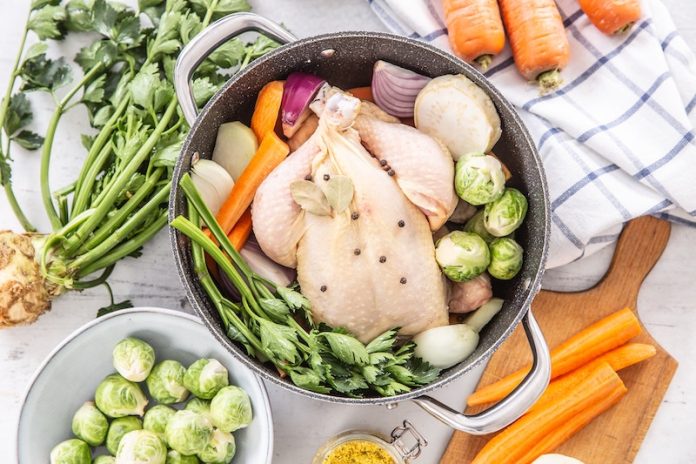
Researchers from Rutgers University have found that consuming a higher proportion of protein while on a diet can lead to improved food choices and prevent loss of muscle mass.
The study, led by Sue Shapses, was published in the medical journal Obesity.
The team analyzed data from multiple weight-loss trials involving over 200 men and women from the past two decades. Participants, aged 24 to 75, were categorized as overweight or obese based on their body mass index.
All participants were encouraged to follow a 500-calorie-deficit diet, meeting regularly for nutrition counseling and support over a six-month period.
They were urged to allocate 18% of their caloric intake to lean protein, such as poultry, unprocessed red meat, fish, legumes, and dairy, while spending the rest of their calories on fruits, vegetables, and whole grains.
They were advised to avoid saturated fats, refined grains, sugar, and salt.
The Study’s Findings
The researchers discovered that even a slight increase in protein intake, from 18% to 20% of a person’s food intake, significantly impacts the quality of the food choices made.
Additionally, a moderately higher intake of protein provided another advantage to the dieters: it reduced the loss of lean body mass often associated with weight loss.
Those in the higher-protein group were better able to retain their lean muscle mass.
The team pointed out that weight-loss regimens that involve calorie restrictions can often prompt dieters to reduce their intake of healthy foods containing essential micronutrients like iron and zinc.
While higher levels of protein intake are often associated with healthier outcomes, the link between protein intake and diet quality is not well understood.
Key takeaways
Increasing protein intake slightly during dieting can lead to healthier food choices and prevent the loss of muscle mass.
This discovery could have significant implications for weight loss strategies and nutritional guidance. Further research is needed to deepen our understanding of the connection between protein intake and diet quality.
Follow us on Twitter for more articles about this topic.
Copyright © 2023 Scientific Diet. All rights reserved.





